Hey there! If you've ever found yourself feeling frustrated and unheard after lodging a complaint, you're not alone. Acknowledging a complaint is a crucial step in ensuring that individuals feel valued and understood in their concerns. In this article, we'll explore the best practices for writing a letter that not only acknowledges receipt of a complaint but also sets the stage for constructive dialogue. So, let's dive in and uncover how to make your response both effective and empathetic!
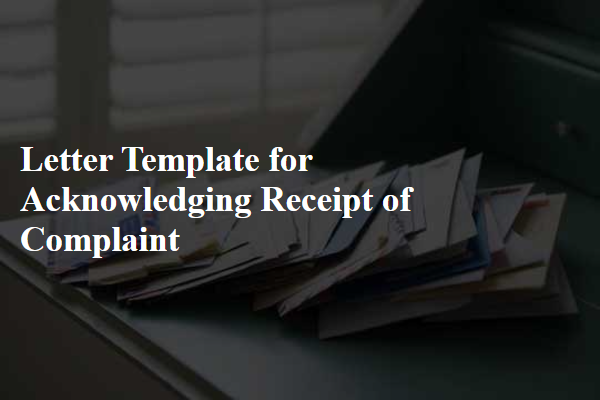
Polite and formal tone
Acknowledging complaints, important for customer service, often involves confirming receipt formally. It reassures customers, showing their concerns are valued. Complaints can stem from various issues, such as defective products, poor service, or unmet expectations. For instance, a customer might express dissatisfaction regarding a recent purchase from a well-known retail store. The acknowledgment should mention the customer's name, complaint date, and the specific issue raised. Additionally, an assurance of investigation or a timeline for follow-up enhances credibility. Maintaining a formal yet polite tone fosters positive customer relations and can mitigate potential escalation.
Clear statement of receipt
Receipt of your complaint has been duly acknowledged. Our customer service team, dedicated to addressing concerns, received the documentation on October 1, 2023, detailing the issues encountered with the product purchased from our flagship store in New York City. We appreciate your feedback, as it helps us enhance service and product quality. A formal investigation into the matter will commence immediately, and you can expect a follow-up communication within the next five business days. Thank you for bringing this to our attention.
Reference to complaint details
Acknowledgment of receipt of a complaint regarding service issues highlights the importance of customer feedback in maintaining quality standards. The complaint referenced, received on October 1, 2023, pertains to service disruptions experienced at the Downtown Customer Service Center, located at 123 Main Street, Anytown. Such incidents can impact customer satisfaction levels, which are critical for business reputation. Timely responses to complaints help in addressing underlying issues, improving service delivery, and enhancing customer trust. Further investigation into the matter will be conducted to ensure resolution and implementation of preventive measures.
Assurance of review or action
Acknowledgment of complaint receipt is essential for customer service, reflecting a commitment to addressing issues promptly. In industries such as retail or telecommunications, receiving complaints can lead to enhanced customer loyalty. The acknowledgment process typically involves confirming the complaint through personalized communication, detailing the nature of the issue, and providing assurance that the matter will undergo thorough review. Companies often ensure adherence to established guidelines, like response timelines (often 48-72 hours), to demonstrate accountability. They may also specify potential resolutions or corrective actions, ensuring customers feel valued. Documenting the complaint in a tracking system further ensures transparency in the resolution process. Prompt acknowledgment fosters trust, encouraging customers to continue engaging with the brand.
Contact information for further communication
Acknowledgment of complaint receipt indicates formal recognition, emphasizing the importance of the issue raised by the individual. Effective communication channels are essential for addressing concerns. Providing contact information, including a phone number, email address, or dedicated complaint hotline, facilitates prompt follow-ups. Ensure clarity and accessibility, allowing individuals to express further details or seek updates. A comprehensive acknowledgment can enhance customer satisfaction and trust in the resolution process.

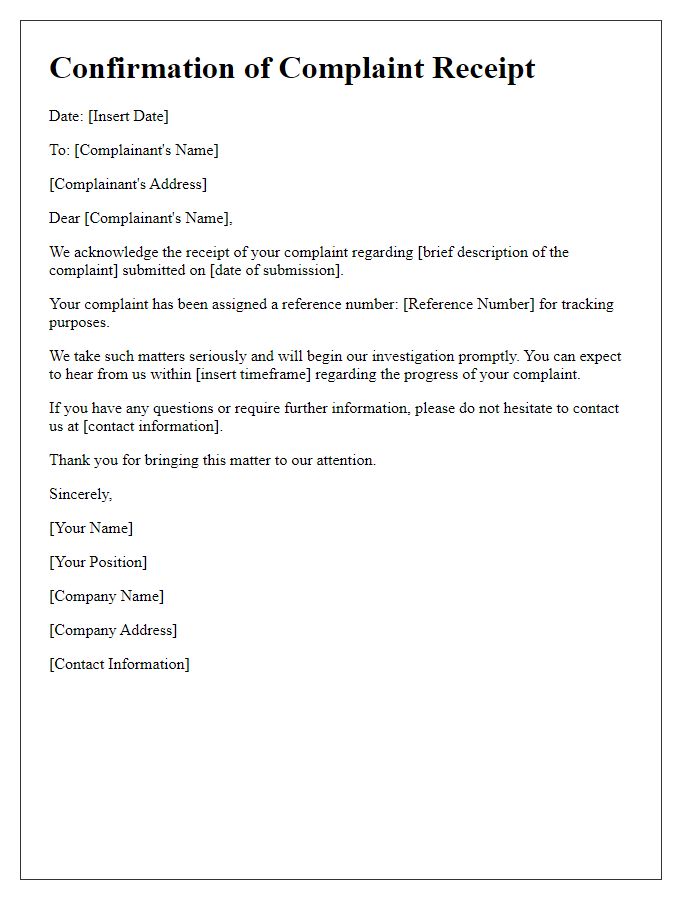
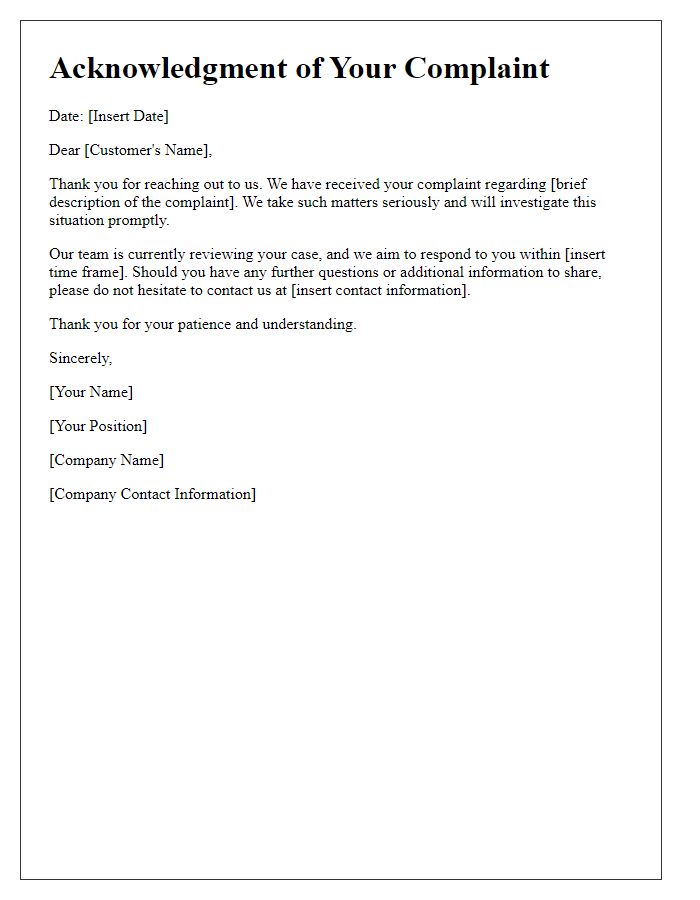
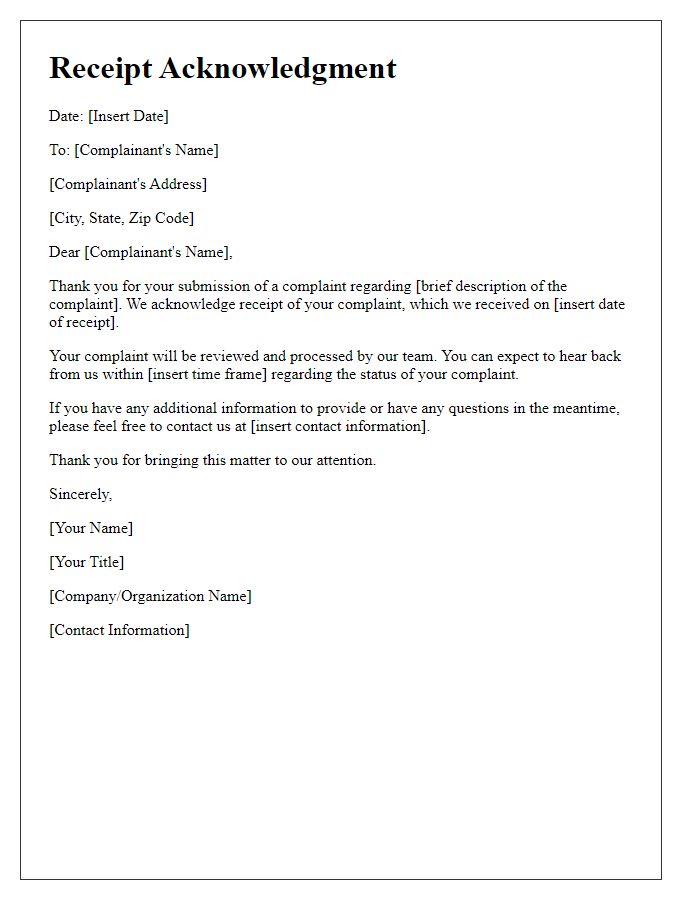
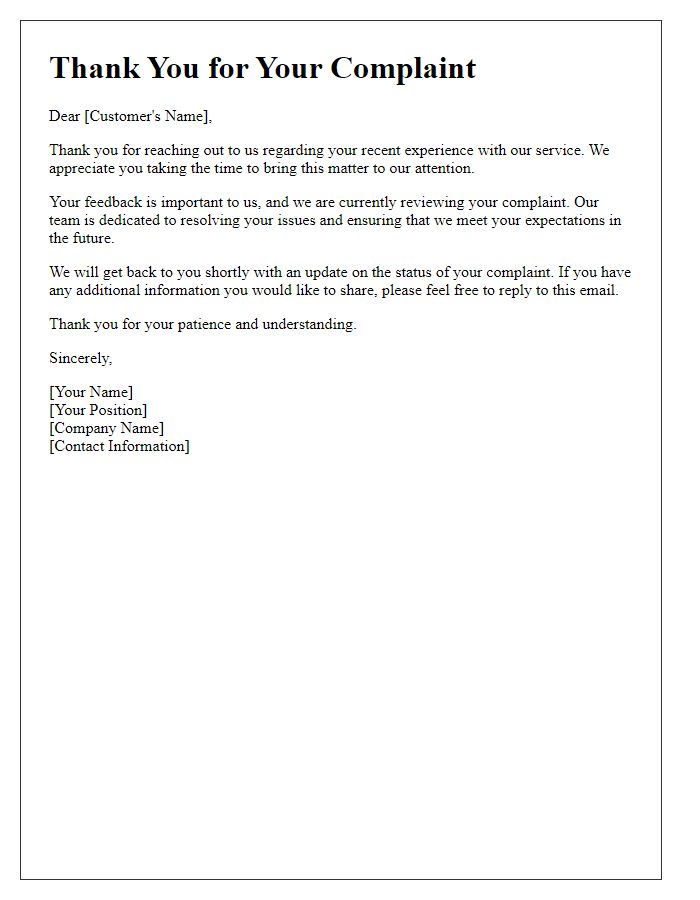
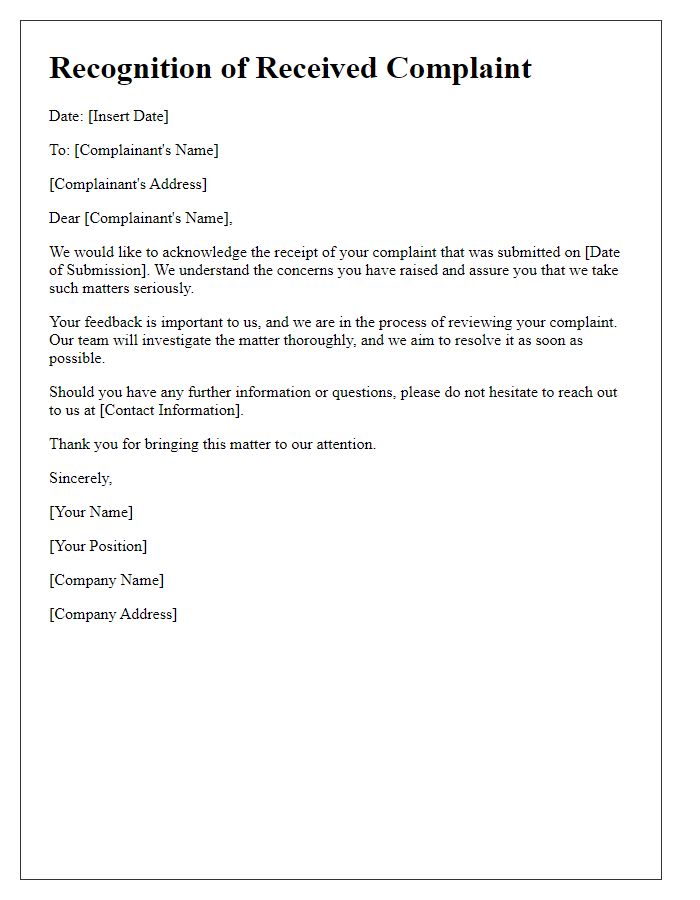
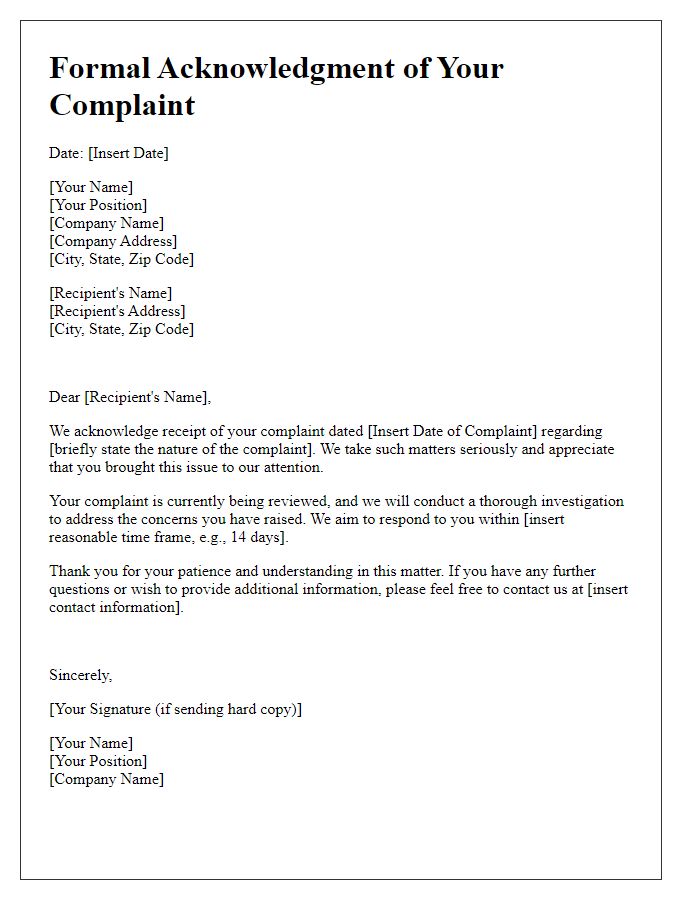
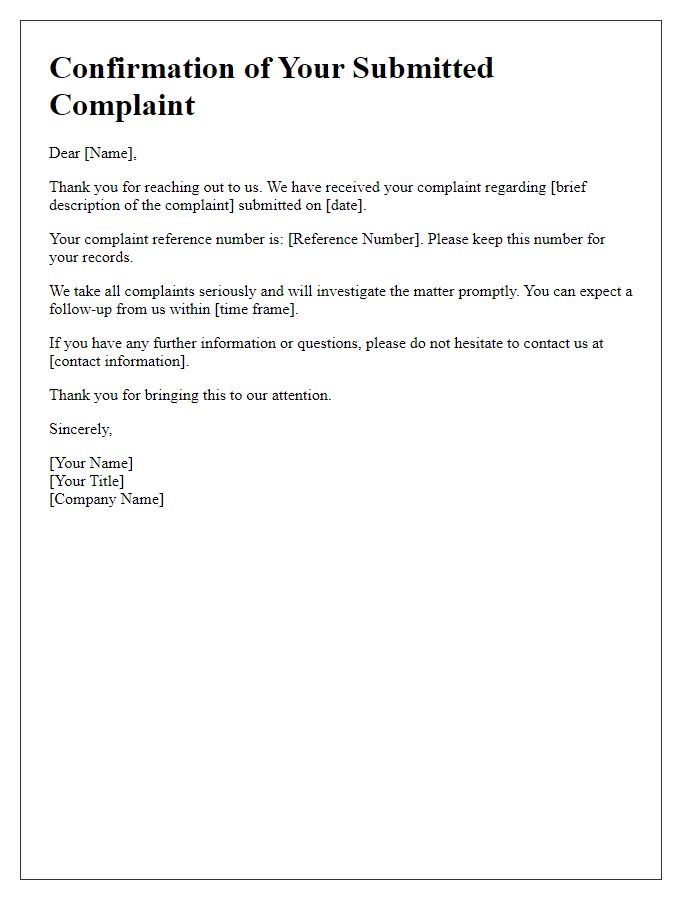
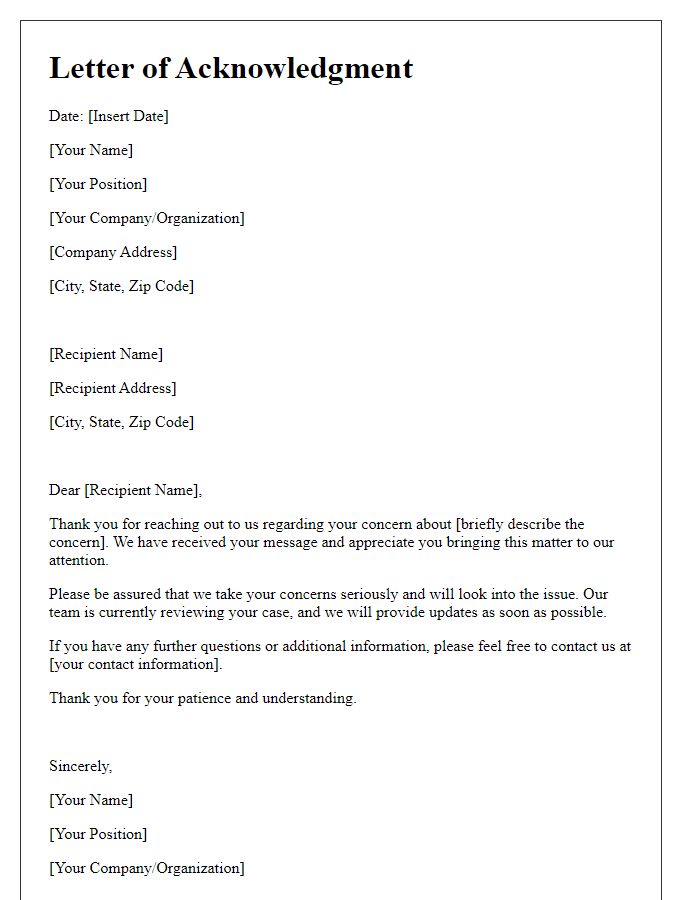
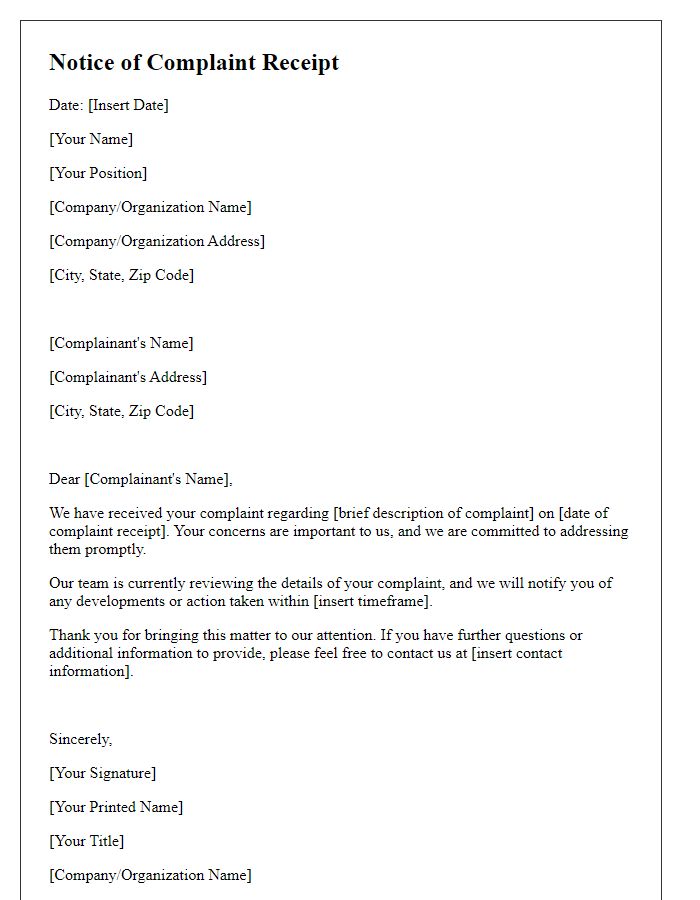
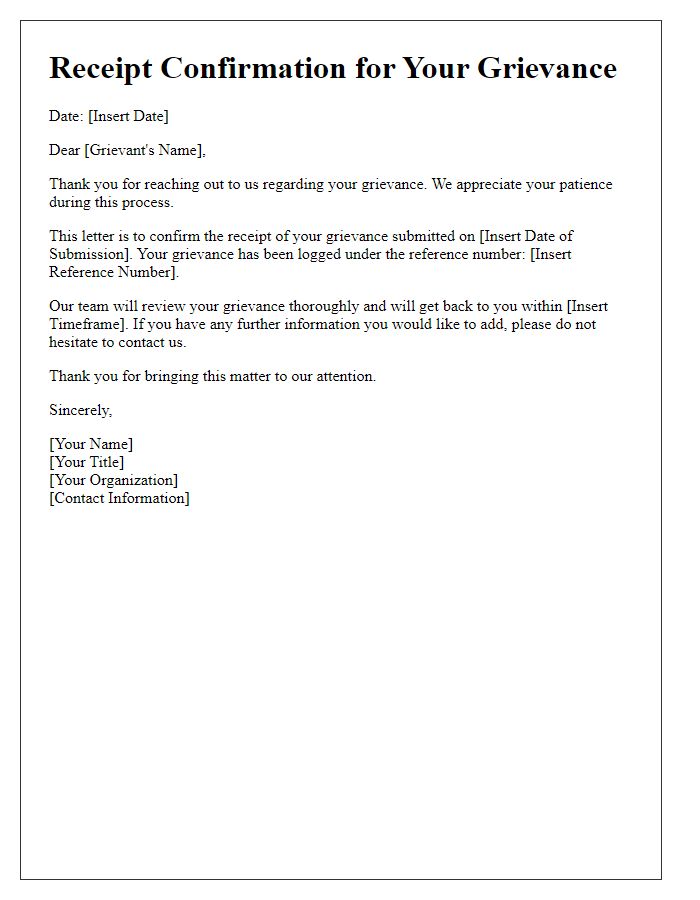


Comments